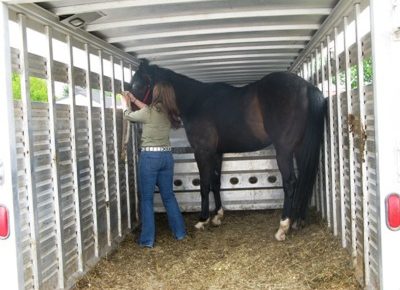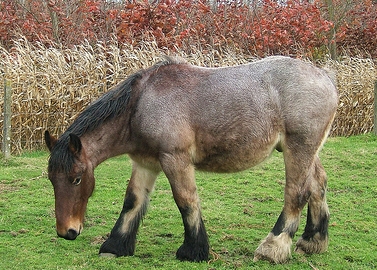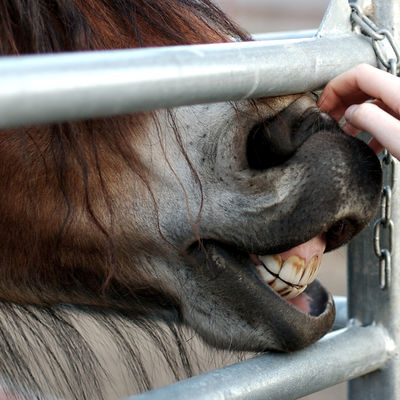Johnsongrass is a drought resistant weed that can invade pastures, especially those not well cared for. In the United States, the Department of Agriculture has classified it as an invasive species. Drought conditions can kill many other grasses, allowing Johnsongrass to flourish.
Johnsongrass is one of about 25 different species in the grass family known as sorghum. Sorghum bicolor, native to Africa is cultivated in places and used worldwide as a grain, in animal feed, syrup or molasses, in alcoholic beverages and biofuels.
When horses ingest large amounts of Johnsongrass and other species of sorghum, it becomes toxic and can cause nerve damage (neuropathy), damage to a fetus (teratogenesis), photosensitization, nitrate intoxication and cyanide poisoning. Toxicity can occur within a few weeks to months when grazing is continuous.
Signs of poisoning can be incoordination (ataxia), urine dribbling and progress to tail and hind leg paralysis. Mares may abort or fetal malformations occur. A male’s penis may be extended and flaccid with urinary incontinence. A horse’s bladder and/or kidneys can become inflamed.
Minimizing exposure to Johnsongrass and other sorghums can prevent problems from occurring. Check hay and remove any sorghums found. Keep pastures and hay fields well maintained and as free as possible of sorghums. If you need help, consult with a weed specialist on control.
If your horse has nerve damage, it is permanent. With ataxia, prognosis is poor. Removal of sorghums and early bladder and kidney treatment may reverse any damage.



